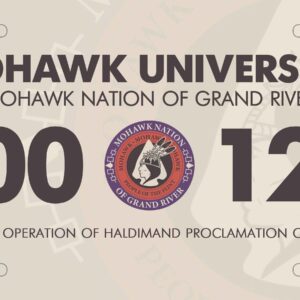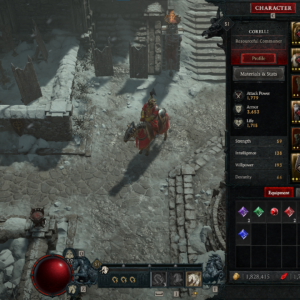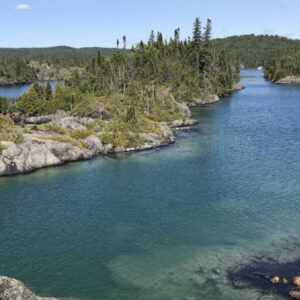*content warning: mentions religious abuse
Two centuries after church and government-run residential schools opened with the aim of forcefully converting Indigenous children into Christians through the use of torture, the world’s most recognized religious leader apologized…or did he?
Last week, Pope Francis shocked the world when he uttered words of remorse and regret for the role the Catholic Church played in the abuse of Indigenous children at residential schools across Canada to a small delegation from Canada visiting Rome.
Reaction has been mixed across the country, with some calling it a first step in the right direction and others saying it is a hollow, meaningless apology that sounded more like a personal plea of forgiveness from God – not from survivors of residential schools.
Here at Six Nations, as the community prepares to re-start a search of the grounds at the Mohawk Institute Residential School in Brantford for the potential remains of Indigenous children, one woman who attended the school weighed in on the apology.
“He said the words, and now we need to see actions from those words,” said Sherlene Bomberry, a survivor of the Mohawk Institute. “We had to send delegates to him, and a positive step would have been him coming here to witness and see us, for him to come to a school site and see for himself and catch the unspoken truths of Survivors as they return to the school grounds. Don’t tell me; show me.”
An excerpt from the Pope’s apology:
“I want to say to you with all my heart: I am sorry,” the Pontiff said to the delegates at the Vatican last week. “And I join my brothers, the Canadian bishops, in asking your pardon.”
The words came after he had asked for God’s forgiveness for the conduct of the Catholic Church in Canada, which ran most of the residential schools in Canada. The Anglican Church also ran a number of residential schools. Thousands of Indigenous children died while attending the schools and their remains were never found until last year, when ground searches of residential schools across the country began turning up thousands of hidden graves. Tens of thousands more survivors endured years of every form of abuse imaginable at the hands of teachers and clergy, including kidnapping, starvation, forced labour, unauthorized medical testing, as well as physical, sexual, psychological and spiritual abuse.
As the delegation of Indigenous elders and leaders visited the Pope in Vatican City last week, the Pontiff said the words that Indigenous people have been waiting to hear for over a century.
But more is expected of the powerful religious leader, as Indigenous groups and leaders across Canada call on the Pope to visit the country this summer to issue a more fulsome apology.
“More than six years following the close of the Truth and Reconciliation Commission (TRC), today we saw progress on an important call-to-action,” said Stephanie Scott, executive director of the National Centre for Truth and Reconciliation.
The TRC was a years-long public inquiry into the treatment of Indigenous children at residential schools that culminated in 96 Calls to Action to address the harmful generational legacy of residential schools left on almost one million Indigenous people living today across Canada.
TRC Call to Action 58 asked for an apology to be delivered by the Pope in Canada, “for the Roman Catholic Church’s role in the spiritual, cultural, emotional, physical, and sexual abuse of First Nations, Inuit, and Métis children in Catholic-run residential schools.”
“Today, Survivors, their families, and their communities heard words of regret and sorrow directly from the Pope,” said Scott. “We have been waiting to hear these words for generations. We look forward to the Pope’s planned visit in July, so he can continue to speak with Survivors, and make an official apology in Canada, in line with the call-to-action.”
She continued, “Today signals the start of meaningful steps by the Church to take responsibility for its egregious actions, the effects of which are still felt across communities and generations today. As we continue to learn and heal together, we are hopeful that this moment will be remembered as a milestone in the work of reconciliation.”
Senator Murray Sinclair, who headed the TRC, said the apology was, “an important moment for Indigenous peoples, for Canada and for Catholics around the world. It is long past time that the church will begin to take responsibility for its role in the residential school system. It was a dark chapter of Canada’s colonialist history, one which the church was a key co-author.”
Sinclair said his grandmother, a Catholic, would have been proud to hear the apology.
“Today, the Pope has put the church on a better path. It allows Catholics to return to the strength of their faith. The hope, faith, justice, and truth that survivors have sought for so long are indeed Catholic values. Now is the time to return to those values and learn from them as we walk forward together on the path of reconciliation.”
Sinclair echoed others when he said the apology was just a start.
“There is still much work to do. On the strength of this historic acknowledgement, the Church must push forward to address deniers within their congregations. The stories of residential school survivors belong in Church services and Sunday schools. It was a great injustice that Catholics – and all people – must learn from.”
“When the Pope comes to Canada this summer, to visit our territories, all survivors can finally hear this apology for themselves.”






